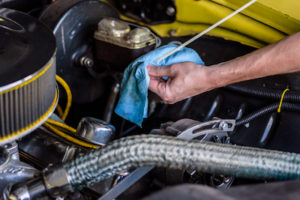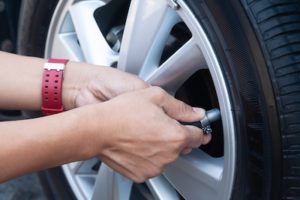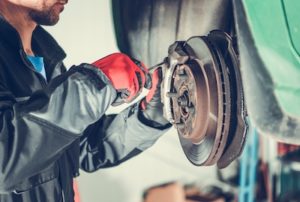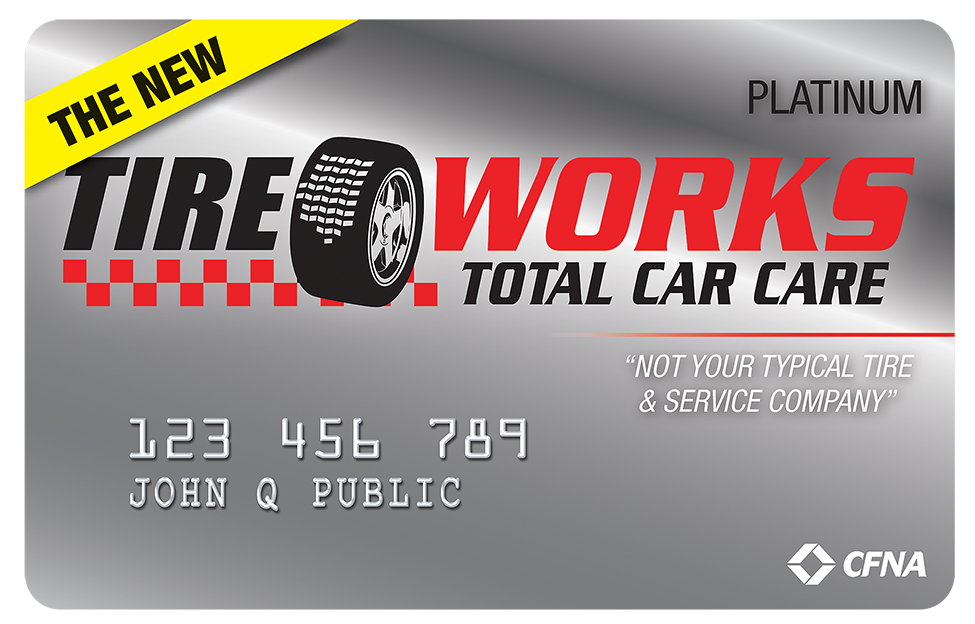Car Maintenance Tips
The best thing you can do to help extend the life of your vehicle is to keep up with regular preventative maintenance services. Preventative maintenance ensures your car or truck is protected from added wear and tear, keeps it running in optimal condition, and helps keep small issues from turning into big problems. It also maintains the safety of your vehicle on the road.
It may seem like a lot to regularly bring your vehicle in for an oil change and stay on top of tire maintenance and other preventative services. But, it will actually save you more money in the long run since you won't have to worry about major, expensive repairs that are entirely avoidable.
Here are a few specific tips and things to keep an eye on to help your vehicle’s engine and other major systems last longer and run optimally:
Check The Oil
 The easiest thing you can do to increase the life of your engine is to ensure it always has the proper amount of clean oil. Motor oil is critical to protecting your engine and works to lubricate sensitive engine parts and helps to absorb excess heat. Keeping an eye on the oil will help ensure it can sufficiently do its job.
The easiest thing you can do to increase the life of your engine is to ensure it always has the proper amount of clean oil. Motor oil is critical to protecting your engine and works to lubricate sensitive engine parts and helps to absorb excess heat. Keeping an eye on the oil will help ensure it can sufficiently do its job.
So, get in the habit of regularly using the dipstick to check the oil and oil level. You also want to have the oil and oil filter changed as recommended for your vehicle. For example, every 3,000 or 5,000 miles, depending on the type of oil used.
Also, you should know which type of oil is best for your vehicle. This usually means taking into account three things — the oil viscosity, whether synthetic versus non-synthetic oil is better in your vehicle, and your vehicle's mileage. At Tire Works, our expert technicians can help you determine the best option for your car or truck.
Inspect & Maintain Your Tires
New tires are an investment, so you want to do everything you can to help them last.
everything you can to help them last.
You can help reduce the wear on your vehicle’s tires and help ensure you're getting good gas mileage by regularly checking the tire pressure. This involves finding the recommended pressure (often found on a sticker on the driver’s door), checking the air pressure (PSI), and inflating or deflating the tires accordingly.
Make sure to also check the tire pressure of your spare. The last thing you want is to run into a situation where you need to use your spare tire and it is flat.
Also, because each of your tires will not wear at the same rate, having them rotated and the alignment checked regularly will help extend the life of your tires. It is recommended to have your tires rotated every 3,000 to 5,000 miles. This is a good service to combine with your regular oil change service.
Check Your Coolant
Your vehicle’s coolant contains powerful rust inhibitors that start to break down over time. The coolant affects critical components, including the radiator, thermostat, air conditioner, heater, and water pump. If you are not regularly having it checked and a coolant flush done as needed, you can risk serious corrosion inside your vehicle.
For something that impacts so many aspects of your vehicle’s overall health, you don’t want to skip the maintenance on your coolant. A good rule of thumb to follow is to check your coolant twice a year and have it flushed if needed.
Check & Replace Filters
Both your engine air filter and your cabin air filter serve an important purpose by working to keep unwanted air pollutants from circulating. These are another set of items to inspect and replace at least once a year.
In your engine, a dirty air filter will reduce performance, reduce fuel efficiency, and contribute to higher engine emissions. All of these things can also lead to further costly problems because the other engine systems, like your fuel system, will have to work harder to run.
With your cabin air filter, the last thing you want is pollutants coming through the air vents. Plus, using an old filter for too long will cause your air conditioning system to have to work harder to keep you cool. This can lead to some costly AC repairs that could have been avoided.
Check The Brakes
 For a system that is directly responsible for keeping your vehicle safe on the road, your brakes should be included in your routine maintenance routine. This should include having the brake fluid checked and the brake pads and rotors inspected.
For a system that is directly responsible for keeping your vehicle safe on the road, your brakes should be included in your routine maintenance routine. This should include having the brake fluid checked and the brake pads and rotors inspected.
Having the proper amount of brake fluid in the system is critical to its proper operation. If you notice that the brake fluid level is low, as soon as possible, use the vehicle manufacturer’s recommended fluid to bring it back up to the necessary level.
A good habit to get into is to have your brake system checked each time you get an oil change. This will ensure your brake fluid is checked and replaced as necessary and catch any issues early.
Check Belts & Hoses
To help avoid expensive problems down the road and keep your vehicle running well, it’s also important to regularly check the belts and hoses. Worn belts can quickly cause major problems to other engine components. For example, if your timing or serpentine belts break, several critical systems can fail.
Also, if hoses are weak and/or leaking, this can cause problems as well. For example, a bad radiator hose can quickly lead to an overheated engine.
In many cases, it is recommended to have your timing belt replaced every 60,000 miles and your serpentine belt every 40,000 miles. For your hoses, it is often recommended that you have them changed every four years or whenever one is showing signs of wear.
So, make sure to have your belts and hoses checked at every oil change to ensure that they're in good condition and replace what is not.
Get Your Vehicle Ready For Winter
It may seem that the winter here in Nevada is not as damaging to your vehicle as if you lived in a location that was cooler for a larger part of the year. But, it can actually be more taxing here on your vehicle if you do not do some important maintenance before the colder months.
This is because your engine is going from running in extremely high temperatures and then running in much lower temperatures. To get your vehicle ready for the winter months, you should go through a variety of maintenance tasks and services to help your vehicle run its best. Many of these we covered above, but they include:
- Replacing dirty air filters
- Having an oil change service done
- Flushing and refilling the cooling system
- Inspecting transmission and power steering fluid
- Replacing wiper blades
- Checking your battery
- Inspecting all lights and bulbs
- Having a tire inspection and rotation done
- Getting a brake inspection done
- Ensuring you have an emergency kit in the vehicle with you at all times
Follow The Manufacturer-Recommended Maintenance Service Schedule
As you can see, staying on top of the recommended preventative maintenance schedules for your vehicle will help keep it safely on the road for much longer.
The exact manufacturer-recommended maintenance schedule will vary, of course, depending on the specific vehicle. Your manufacturer will recommend oil changes and other services at specific intervals. For example, it is often recommended to bring in your car for scheduled maintenance service and tune-ups at the 30,000, 60,000, and 90,000-mile marks.
Your vehicle’s owner’s manual is the best place to look for all of the recommended services and when they should be done. To keep your vehicle running its best for as long as possible, try and follow the book as closely as possible. If you do this, it is entirely possible for your vehicle to last you several hundreds of thousands of miles.
Schedule Your Maintenance Appointment Today
If you have checked several of these vehicle systems we covered above and determined it is time for expert preventative maintenance on your vehicle, come into your nearest Tire Works location today.
Our factory-trained ASE-certified technicians can help you determine the best regular maintenance schedule to help you keep your vehicle running its best. We’ll ensure your vehicle’s services are performed professionally and get you back on the road.
Book your appointment online now!










